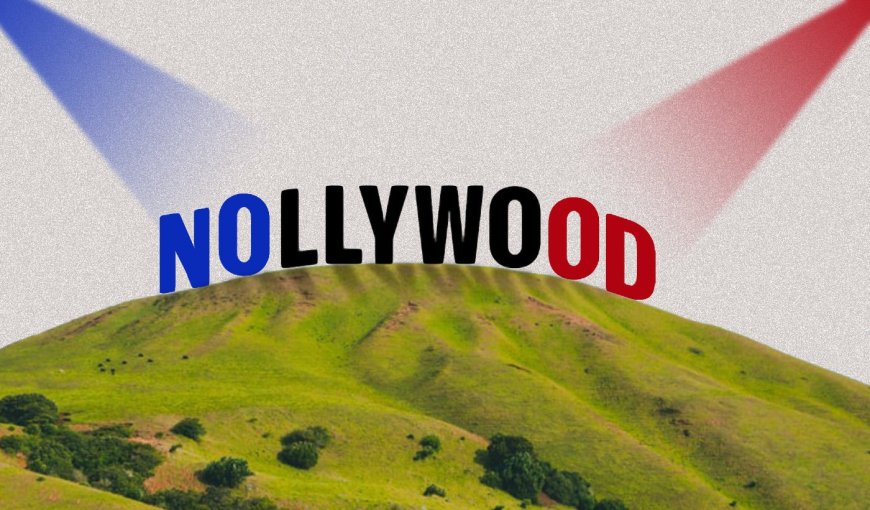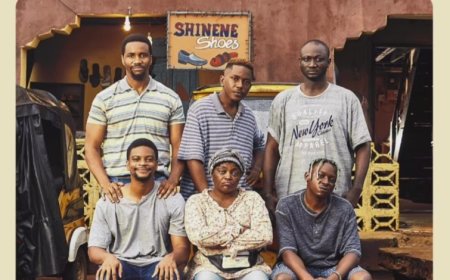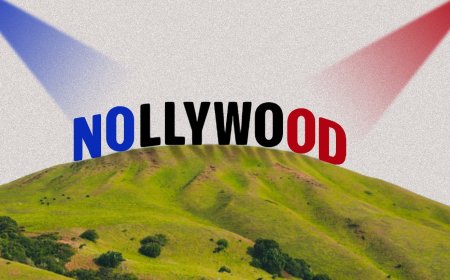Nollywood: How Nigeria's Film Industry Became Second Largest in the World
From Homemade Dramas to Global Sensations: The Rise of Nollywood

In the world of movies, everyone knows about Hollywood and Bollywood. But there's another big player you might not have heard much about Nollywood. It's the film industry in Nigeria, and it's now the second largest in the world when it comes to making movies.
What Exactly is Nollywood?
Nollywood is the term used to talk about all the movies made in Nigeria. It's impressive because they make around 2,500 films every year! That's even more than Hollywood, although not as many as India's Bollywood.
Back in 2002, a smart journalist from New York Times, Norimitsu Onishi, came up with this name when he noticed a lot of movies being made in Lagos, Nigeria. What's unique about Nollywood is that it doesn't have as much money as Hollywood or Bollywood, but it still manages to make a ton of movies.
Nollywood's Journey: From Simple to Spectacular
At the start, Nollywood movies had a kind of homemade feel. They weren't super fancy, but they got the job done. Lately, though, things have changed. Now, Nigerian filmmakers are making all sorts of movies - not just comedies and dramas, but also scary ones, historical movies, musicals, and even films with really good picture and sound quality.
Noteworthy Nollywood Movies
Here are some movies that made Nollywood stand out:
-
Living in Bondage (1992)
-
Violated (1996)
-
Maami (2001)
-
Contract (2012)
Some Other Notable Nollywood Movies:
-
Married But Living Single (2012)
-
30 Days in Atlanta (2014)
-
Ojuju (2014)
-
Taxi Driver: Oko Ashewo (2015)
-
Okafor’s Law (2016)
-
The Wedding Party (2016)
-
From Lagos with Love (2018)
Nollywood's Early Days
Back in the 1900s, African countries were making movies, but not as many as you'd expect. Nigeria, unlike some other African countries, didn't have much help when it came to movies after gaining independence. So, they had to figure it out on their own.
In 1957, a film called "Fincho" was the first Nigerian movie to use color. The very first Nollywood films were made by historical filmmakers like Ola Balogun, Hubert Ogunde, Jab Adu, Moses Olayia, and Eddie Ugboma.
In 1984, "Papa Ajasco" by Wale Adenuga became a massive hit, earning a whopping 61,000 nairas in just three days. But it wasn't until the 1990s that Nollywood really took off.
The 1990s: Nollywood's Big Break
The 1990s were the game-changer for Nollywood. A grassroots movement sprouted in Nigeria, transforming Nollywood into what it is today.
The Yoruba people, who live in Nigeria and Benin, played a huge role in this. They used to perform plays as they traveled from place to place. Soon, they started filming these plays and turning them into movies. It was quick, cheap, and a great way to share their stories.
By the mid-'90s, people were making a living out of turning these plays into movies. Others, like the Igbo Group from southeastern Nigeria, followed suit. In 1992, Chris Obi Rapu directed "Living in Bondage," often seen as the birth of Nollywood.
From just a few movies, the number skyrocketed. Sure, these early films didn't have the best lighting or sound, but they had something special. They were made with very little money, but they told stories that connected with people.
Now, with more funding and better quality, Nollywood is a major player in Nigeria's economy, providing jobs and contributing to the country's growth.
Nollywood's journey is a true success story - born from the passion of its people, and continually growing stronger with the help of modern filmmakers.
Must Read: Mohbad: A Rising Star's Journey, Tragically Cut Short








































